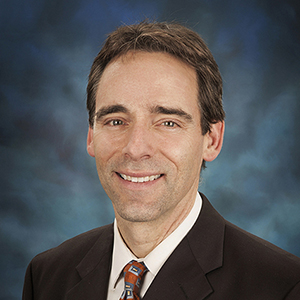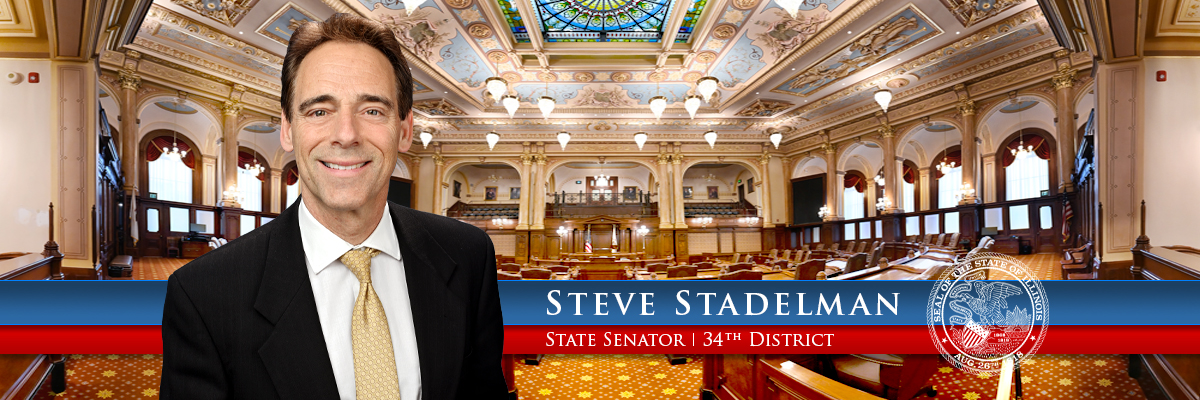Stadelman urges Gov. Rauner to support school funding reform
- Details
- Category: Press Releases
 State Senator Steve Stadelman (D-Rockford) released the statement below urging Gov. Rauner to support Senate Bill 1.
State Senator Steve Stadelman (D-Rockford) released the statement below urging Gov. Rauner to support Senate Bill 1.
“There is a lot of rhetoric being spread about the school funding reform measure that will soon reach the governor’s desk, but my support for it is simple: it will bring $5 million to Rockford schools.
Our education funding system in Illinois is broken. This plan is the result of years of negotiations and work. Don’t’ be fooled by comments that it is a ‘Chicago bailout.’ This evidence-based formula will provide millions in funding to the state’s neediest districts, like Rockford Public Schools, and like the 268 districts that will receive more funding than Chicago Public Schools.
The only reason this legislation is not already on the governor’s desk is because he has threatened to veto it before even getting a chance to read it. Let’s hope these weeks of discussion have allowed cooler heads to prevail. This is a win for Rockford. I would urge the governor to support this much-needed reform.”
Stadelman: Budget ensures schools stay open, roadwork continues
- Details
- Category: Press Releases
 State Senator Steve Stadelman (D-Rockford) released the following statement after the Senate voted to approve a balanced budget.
State Senator Steve Stadelman (D-Rockford) released the following statement after the Senate voted to approve a balanced budget.
“Today, I voted to make sure that Rock Valley College’s doors stay open. I voted to make sure that roadwork in Rockford doesn’t grind to a halt. I voted to make sure that Rockford and Harlem schools open in the fall. Without a balanced budget, none of that would be possible. Today’s vote was not easy, but I am proud to have voted to restore certainty and stability to Rockford, Winnebago County and all of Illinois.”
Measure could help Rockford-area adults earn high school diplomas
- Details
- Category: Press Releases
 Thousands of adults in Winnebago and Boone may get the chance to earn their high school diploma, thanks to legislation that passed the Illinois House.
Thousands of adults in Winnebago and Boone may get the chance to earn their high school diploma, thanks to legislation that passed the Illinois House.
The measure, sponsored by State Senator Steve Stadelman (D-Rockford) in the Senate, effectively eliminates the existing law prohibiting school districts from awarding high school diplomas to anyone over the age of 21.
“A high school diploma is nearly essential in today’s world, but not everyone is able to complete high school in the same amount of time,” Stadelman said. “These programs will give people a second chance and help them obtain job skills. And they benefit everyone, because a trained workforce is good for economic development in our communities.”
The legislation allows non-profit entities, including community colleges, to establish programs that can award high school diplomas to adult learners.
House Bill 2527 passed both chambers unanimously and heads to the governor’s desk for approval.
River Edge Historic Tax Credit extension heads to governor’s desk
- Details
- Category: Press Releases

State Senator Steve Stadelman (D-Rockford) passed legislation in the Senate extending the credit through January 2022 earlier this month.
“The tax credit has already incentivized hundreds of millions of dollars of development in Rockford alone,” Stadelman said. “This will help put crumbling infrastructure back to use, grow the economy and increase revenue.”
The credit has been an important economic tool for the revitalization of downtown Rockford, and is equal to 25 percent of the rehabilitation costs for a business in a historic building.
Previously, the tax credit was used to incentivize projects like the $12 million renovation at the Prairie Street Brewhouse, which also created 110 construction jobs. In addition to Rockford, the credit is also available in Aurora, Peoria, Elgin and East St. Louis.
An extension of the River Edge Historic Preservation Tax Credit has passed both legislative houses and is headed to the governor for approval. State Senator Steve Stadelman (D-Rockford) secured passage of legislation today that extends the River Edge Historic Preservation Tax Credit for four more years starting in January 2018.
State Senator Steve Stadelman (D-Rockford) passed legislation in the Senate extending the credit through January 2022 earlier this month.
“The tax credit has already incentivized hundreds of millions of dollars of development in Rockford alone,” Stadelman said. “This will help put crumbling infrastructure back to use, grow the economy and increase revenue.”
The credit has been an important economic tool for the revitalization of downtown Rockford, and is equal to 25 percent of the rehabilitation costs for a business in a historic building.
Previously, the tax credit was used to incentivize projects like the $12 million renovation at the Prairie Street Brewhouse, which also created 110 construction jobs. In addition to Rockford, the credit is also available in Aurora, Peoria, Elgin and East St. Louis.
More Articles …
Page 109 of 126




